It started out as just another quiet Saturday shift in Aberdeen.
There wasn’t much happening that was out of the ordinary, even as we counted down the days to the Scottish independence referendum in September 2014.
But, suddenly, the phone rang and a colleague said breathlessly: “Hi Neil, can you phone your boss? Rupert’s here in the city.”
When Rupert Murdoch visited Aberdeen, it wasn’t a normal Saturday
“Rupert who?” (Yes, it was a daft question; it wasn’t going to be the bear or Mr Everett).
“Rupert Murdoch. He’s sitting having his lunch in the Prince of Wales pub. And there are a crowd of demonstrators starting to assemble outside the place.”
It was urgent, so there was no time to ask him if Robert Maxwell was having a Scotch egg and a whisky in another part of the bar.
I called my editor and, while I can’t repeat his response, it rhymed with clucking bell. Then, everything kicked into gear.
Up on Union Street, the Yes and No campaigners had been handing out leaflets and delivering their messages to the public throughout the morning.
One independence supporter recalled: “Things were on a knife-edge and it was just five days from the vote.
“We heard whispers that Murdoch might be about to come out in support of a breakaway from the UK. And put the Scottish Sun behind the Yes camp.
‘We had mixed feelings about it’
“The mood was weird in Aberdeen that morning and it seemed that something big might be going to happen. The funny thing was that a lot of us couldn’t stand Murdoch, but we were at the stage where we needed all the help we could get.
“One moment, it was just talk. The next, folk were going nuts. He had been down in Glasgow and in Fife and now he was in Aberdeen. This was a game-changer.”
The then 83-year-old media mogul later admitted that his hopes of remaining out of the limelight had been futile and posted about it on social media.
He wrote: “Tried 24 hours incognito Scottish visit (failed!). No politicians, just street and pub talks. Glasgow, Aberdeen, Rosehearty. Great people.”
The demos happened quickly
In what was a volatile landscape, Aberdonians on both sides of the constitutional divide sprung into action. A Radio Free Europe journalist filmed the whole stramash.
And one of those on the No side – former Labour MSP Lewis Macdonald – was among those who joined the crowd as a right royal ruckus enveloped the Prince of Wales.
He told me: “I was out campaigning with my Labour MP colleagues Anne Begg, Frank Doran and Joan Ruddock, and other supporters [of the status quo].
“Every Saturday morning that summer, the two rival campaigns shared space in front of M&S. While our disagreements were often noisy, we managed not to fall out too much.
They were miffed we were there
“That morning, though, our team quickly sensed something was up. The Yes campaign had set up a stage, and were clearly expecting a high-profile visitor.
“Naturally, we stayed put, to make sure whoever turned up heard our side of the argument.
“SNP activists were running around in a state of high excitement and were clearly quite miffed that we had not gone away.
“What followed could be described as competitive chanting, with dozens of people in both choirs, and plenty of shoppers just trying to get on with their day.”
In the blink of an eye, three men appeared, walking briskly up Market Street and through the crowds, heading for the entrance to the Prince of Wales. A dark limousine had also parked outside the pub, facing away from the busy street.
A moment later, Mr Macdonald and his colleagues realised that “the small guy” in the middle of the throng was Rupert Murdoch, protected by a large man on either side.
It was time for a stickers war
He added: “He was handed stickers by both Yes and No campaigners, and he put them both on at the same time.
“As the owner of the Scottish Sun, this was a guy who could influence the votes of thousands of readers if he chose to do so, but he was giving nothing away.
“My MP colleagues had all met him before, particularly Joan who represented a London constituency. They walked alongside him, explaining quietly that there were plenty people in Scotland who were completely against breaking away from the rest of Britain.
“Meanwhile, Mr Murdoch was loudly and aggressively called out by a Yes activist, who couldn’t resist the opportunity to make an impact on such a famous visitor.
It was noisy but peaceful
“Moments later, he and his men disappeared into the pub, where they had lunch. Anne Begg and a couple of others decided to do the same and, while they let him have his lunch in peace, they took the opportunity to have a quiet word afterwards.
“After that, Mr Murdoch was spirited away in the dark limousine, to visit the graves of his forebears in Buchan, and on the Monday morning the Scottish Sun advised its readers to make up their own minds about the referendum.”
It emerged later that if Scotland had voted to go its own way, the newspaper tycoon, whose grandfather Patrick John Murdoch emigrated from Aberdeenshire to Australia in 1884, could have chosen to seek citizenship.
But, with the vote on September 18 serving up a 55%-45% victory for the No brigade, such issues were rendered irrelevant.
The Yes fan didn’t help himself
However, as Mr Macdonald said: “Did Rupert Murdoch come to Aberdeen intending to announce his support for the Yes campaign from the platform which had been set up in the city that morning?”
He added with a wink: “We will never know for sure, but I’ve always wondered if the angry Yes campaigner who slagged him off outside the Prince helped the No campaign to win the day!”
If so, it was a no-no on both counts.
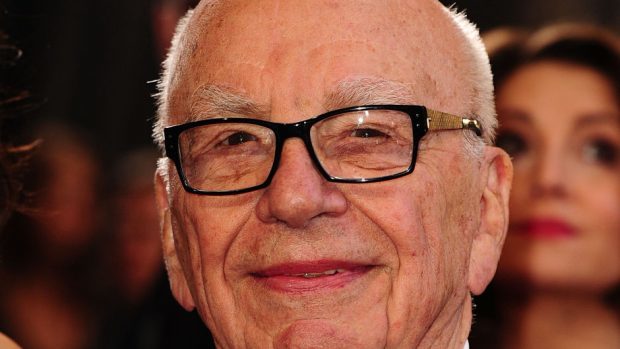
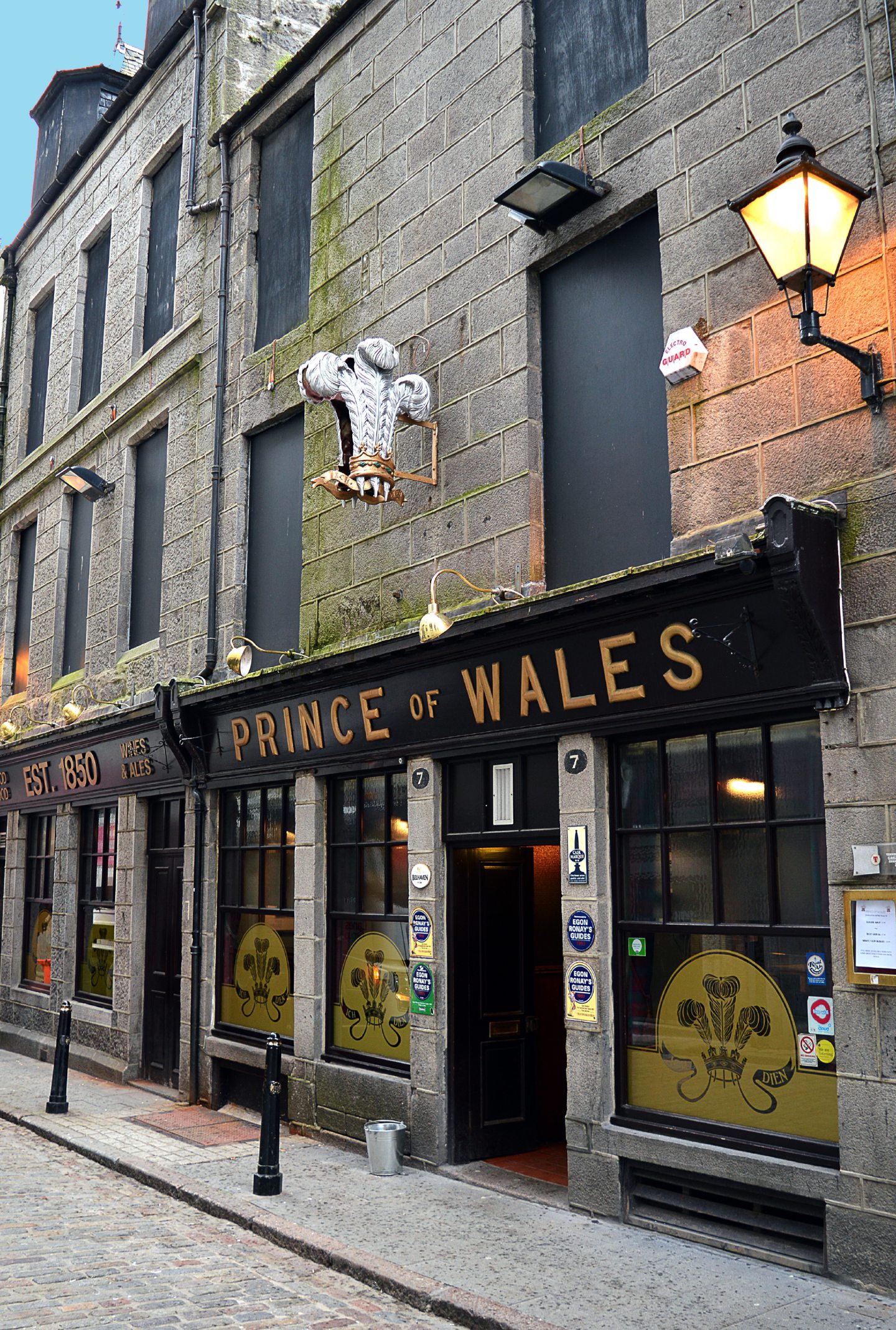
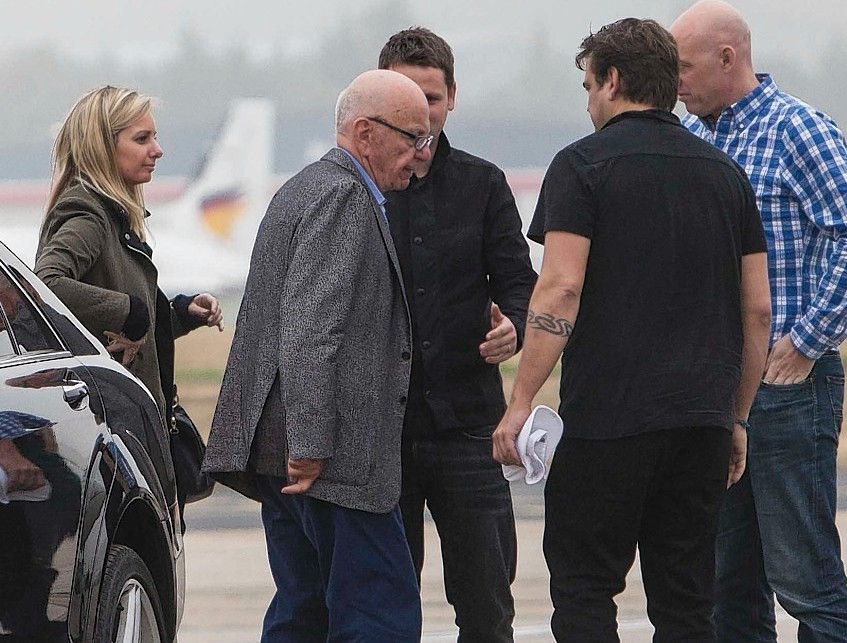
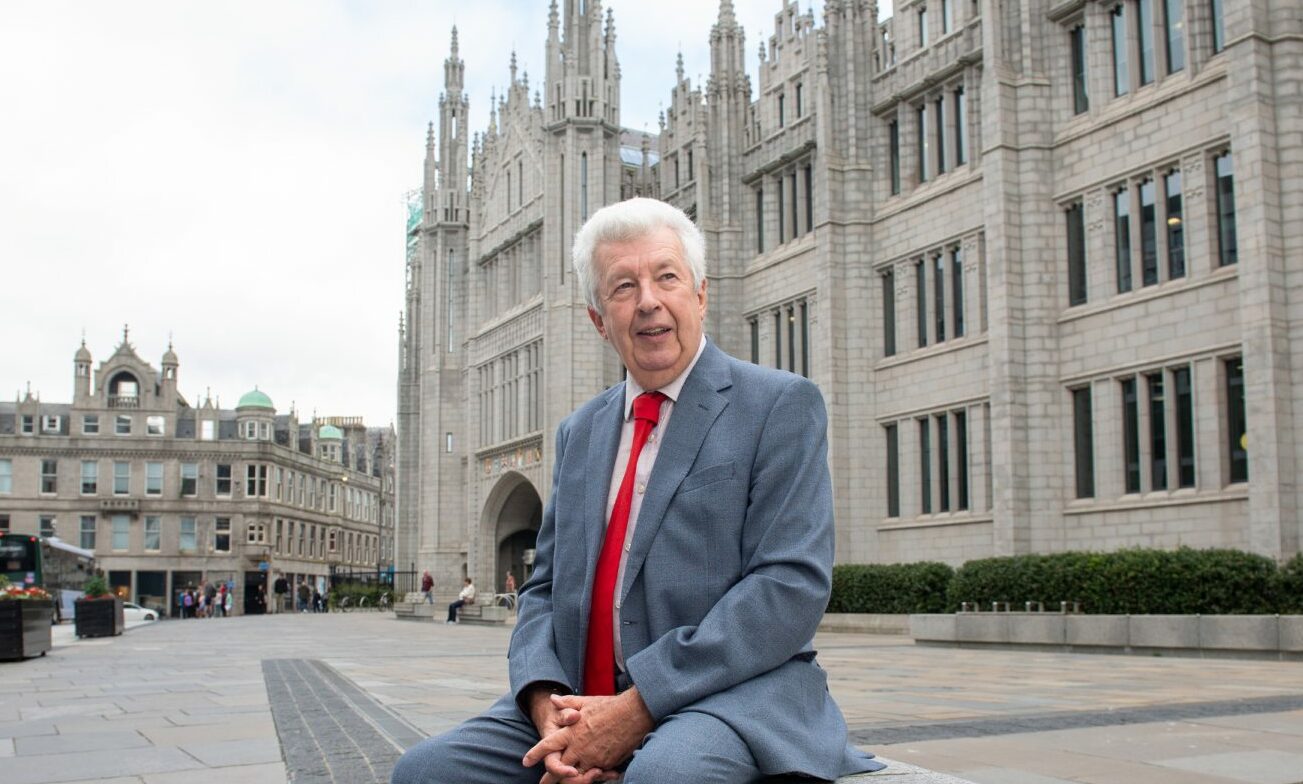
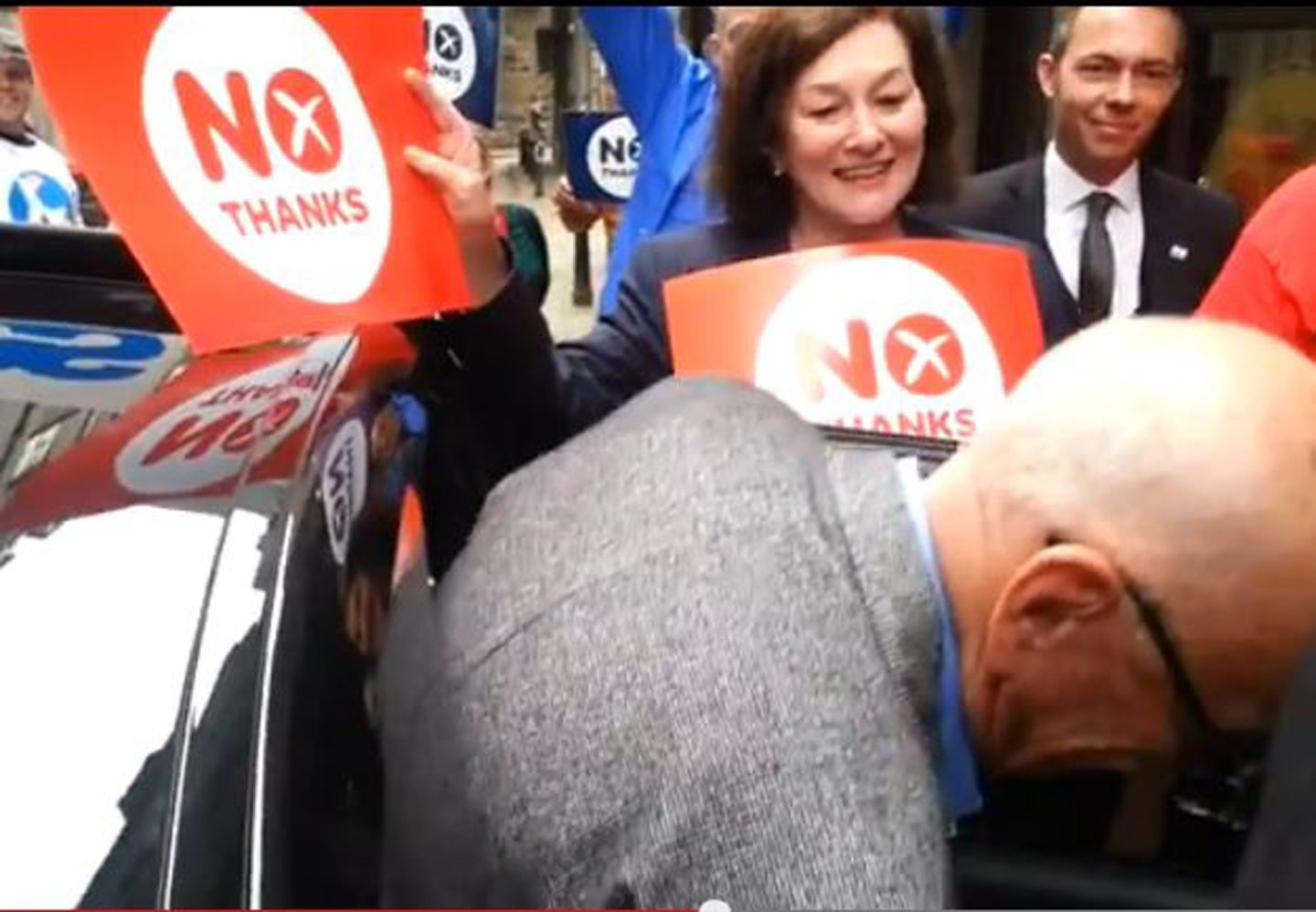
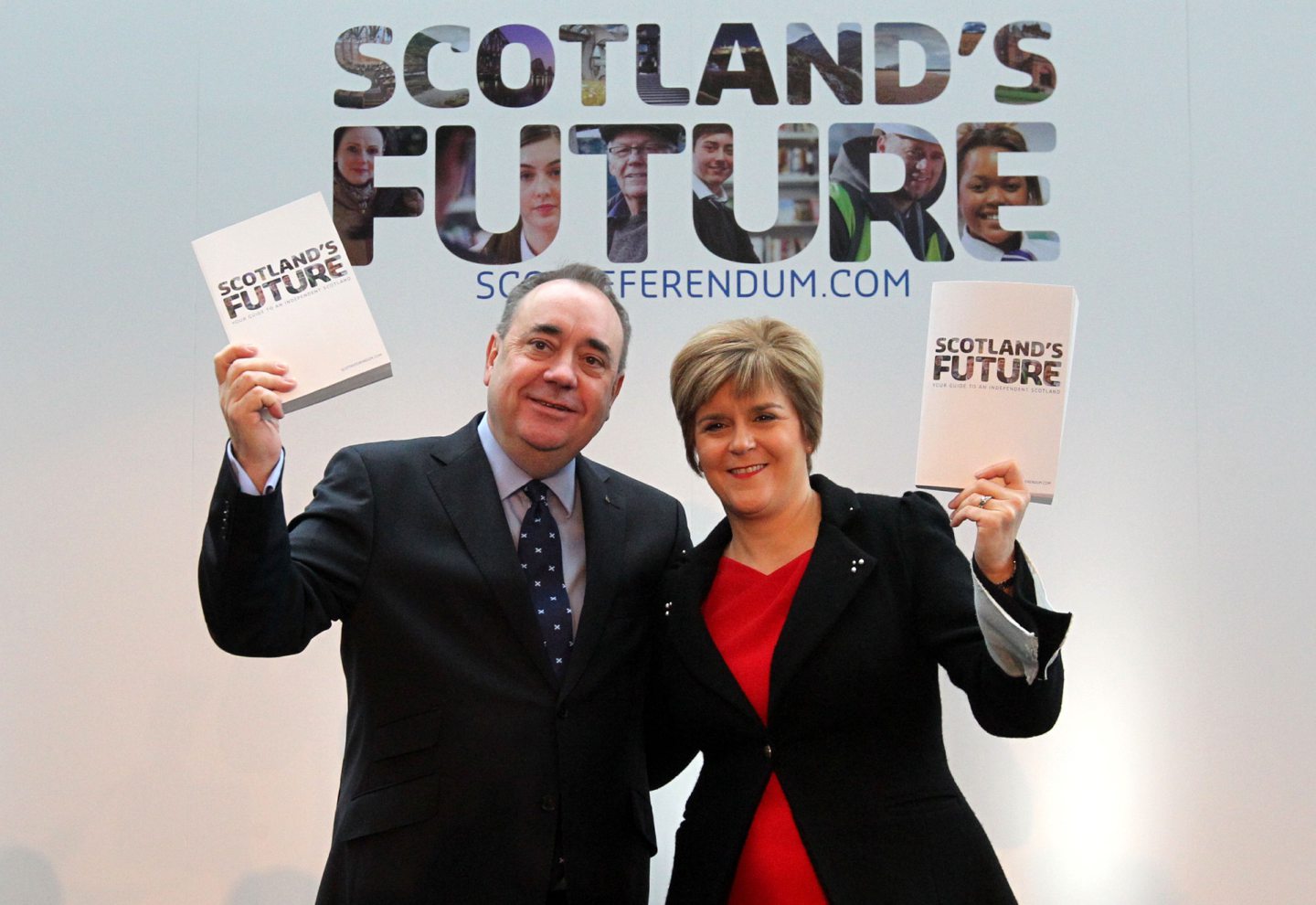
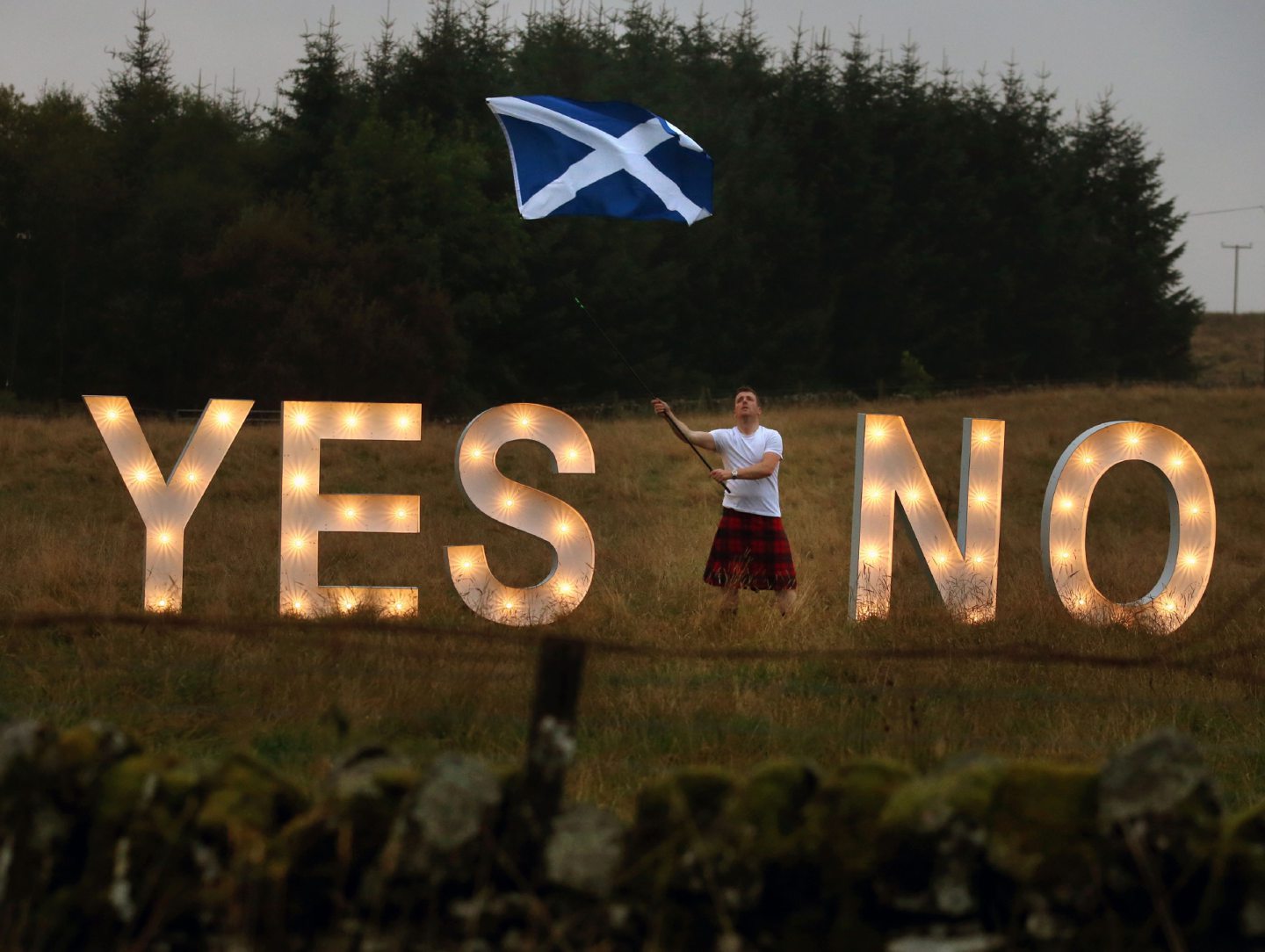
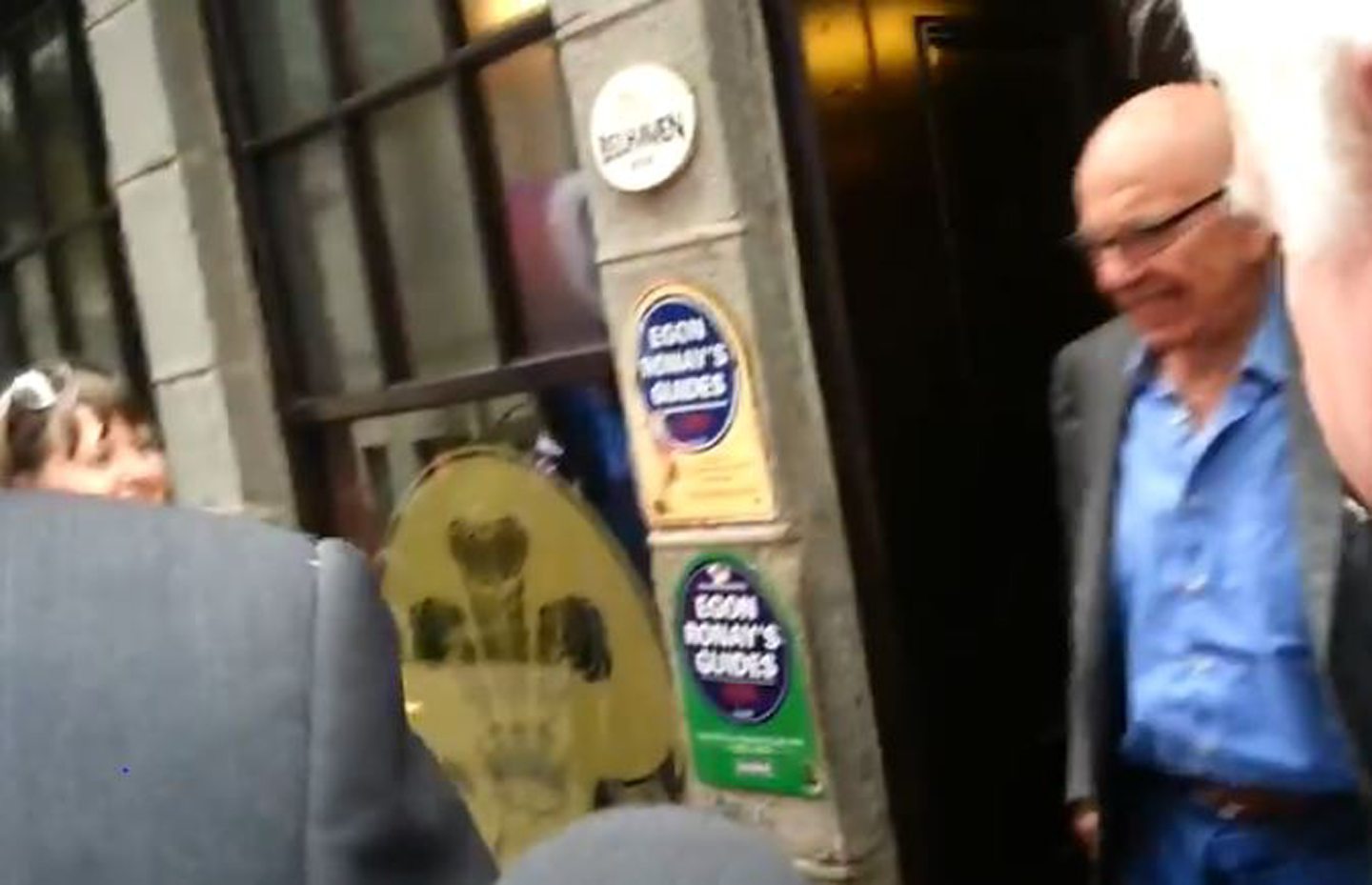
Conversation